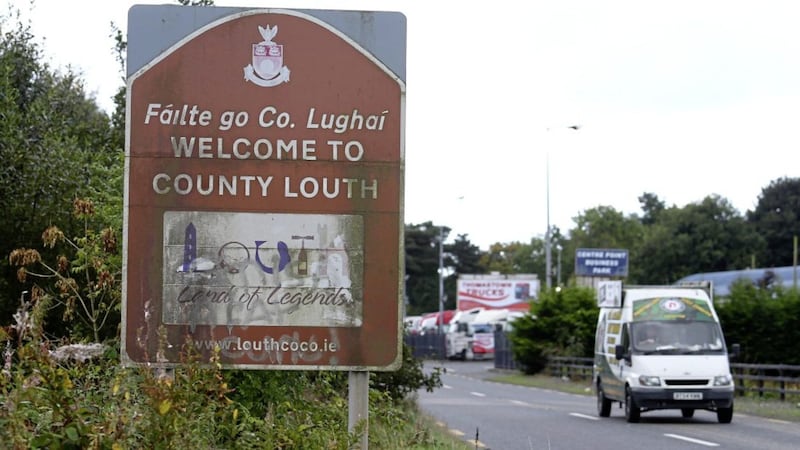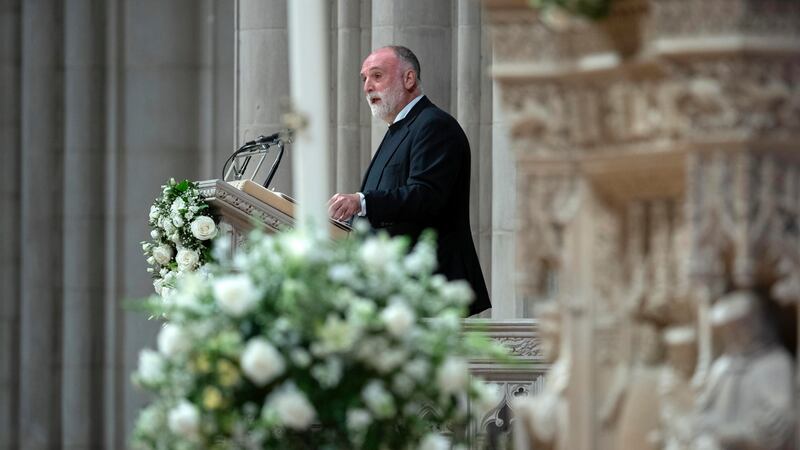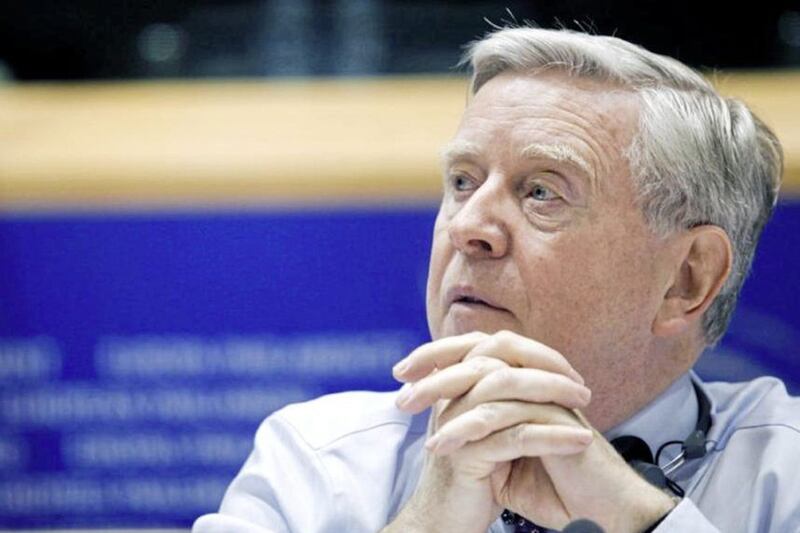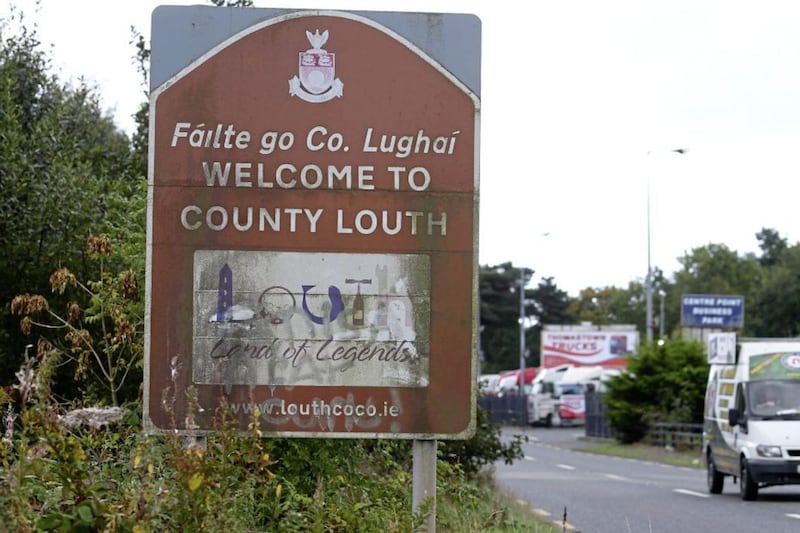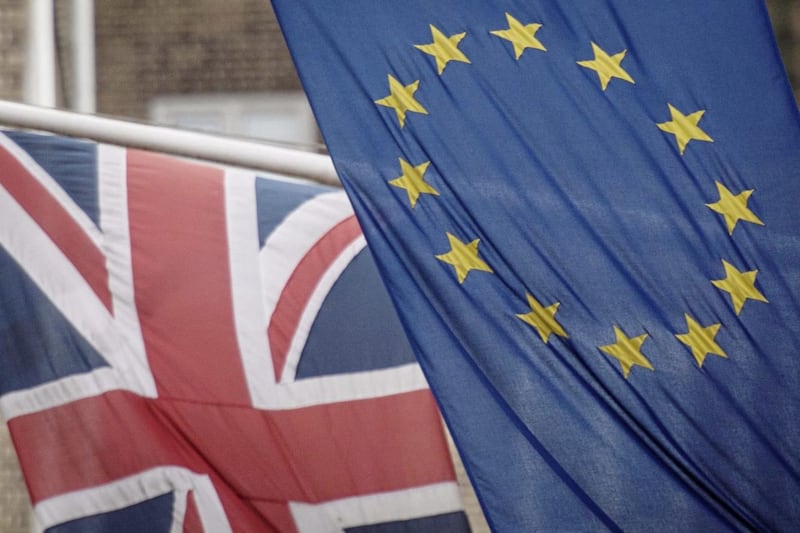The British government has insisted there will be no new infrastructure or additional personnel deployed along the border after Brexit.
Setting out how the border will operate and how trade between Ireland and Britain will be conducted when the UK severs ties with Brussels, Whitehall's 'Northern Ireland and Ireland' position paper includes a series of desirable outcomes that it is hoped will form the basis of forthcoming negotiations with the EU.
Key to the UK approach is upholding the Good Friday Agreement and safeguarding the Common Travel Area, which enables free movement between Ireland and Britain.
Related links
John Manley: The Whitehall paper is a start but don't bet on it being a Brexit blueprint
British Brexit plans greeted with scepticism in Borderland
Analysis: Position paper does little to ease business concerns
[ Theresa May writes for The Irish News: Brexit, the border and Irish citizenshipOpens in new window ]
John Manley: Theresa May asks the right questions but we need answers
Theresa May will explore potential for post-Brexit peace funds targeting north
British government's Brexit position paper proposes no physical changes to border
Irish citizenship is your birthright, pledges Theresa May
Timeline: Theresa May's announcements on the border and Brexit
The paper acknowledges EU support for the peace process and advocates continued peace funding for the north and border counties, which has amounted to nearly £1.4bn over the past 20 years.
It also seeks to enshrine the 1998 agreement's citizenship rights, which enable those living in the north to claim Irish or British nationality.
Notably, when it comes to north-south trade, the CCTV and number plate recognition that has been speculated about in recent months is ditched in favour of a lighter touch that on one hand would give more than 80 per cent of businesses customs exemptions, or alternatively, see trading arrangements between the two jurisdictions aligned.
The proposed exemptions would apply to small and medium-sized enterprises involved in localised cross-border trade, while for larger firms, the paper suggests a new 'streamlined' customs regime that would see declarations completed retrospectively either online or at the company's premises.
While Whitehall officials acknowledge that the proposals could be abused by British firms or companies on the continent using counterparts in the Republic to avoid paying tariffs, they insist the risks can be managed.
The alternative 'new customs partnership' would be a negotiated outcome that effectively removed the UK-EU frontier and would be based on corresponding trade requirements in each jurisdictions.
"The UK government’s clear priority in devising new border arrangements is to respect the strong desire from all parties and all parts of the community in Northern Ireland and Ireland to avoid any return to a hard border, and to maintain as seamless and frictionless a border as possible," the paper states.
The British government document again rejects the notion of a 'sea border' around Ireland, that would likely lead to immigration checks for people travelling between the north and Britain.
"The UK has been clear that avoiding a return to a hard border between Northern Ireland and Ireland is one of our top priorities," the paper states. "But the answer as to how to achieve this cannot be to impose a customs border between Northern Ireland and Great Britain, and we believe our position on this is widely shared."
The document proffers a transition period "linked to the implementation of the arrangements, to allow a smooth and orderly transition".
"This will enable the UK and the EU to avoid any cliff-edge as we move from our current relationship to our future
partnership," it states.
"The government believes a model of close association with the EU Customs Union for a time-limited interim period could achieve this."
The Whitehall paper also seeks to ensure worthwhile consideration is given to maintaining Ireland's Single Electricity Market, which has been operating for a decade and was formulated under EU guidelines.
Brexit secretary David Davis said the UK government proposals prioritised protection of the Good Friday Agreement and ensured the border would be "as seamless as possible for people and businesses".
"In committing to keep the Common Travel Area, which has existed for nearly a century, we're making sure UK and Irish citizens will continue to be able to travel, live, work and study across both countries," he said.
Secretary of State James Brokenshire said the paper highlighted the British government's "commitment to protecting and advancing the unique interests of Northern Ireland as we leave the EU".
"The paper provides flexible and imaginative ideas and demonstrates our desire to find a practical solution that recognises the unique economic, social and cultural context of the land border with Ireland, without creating any new obstacles to trade within the UK," he said.
